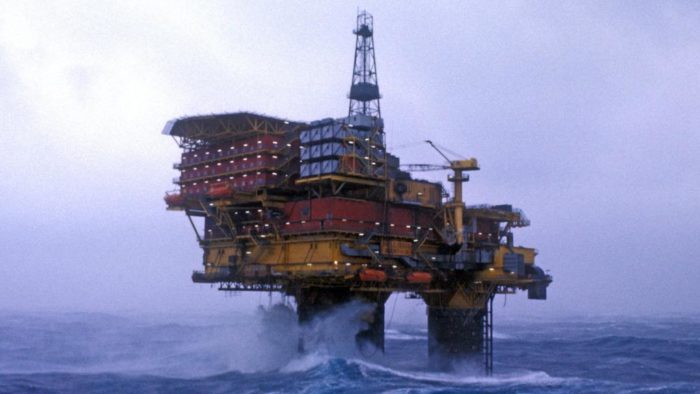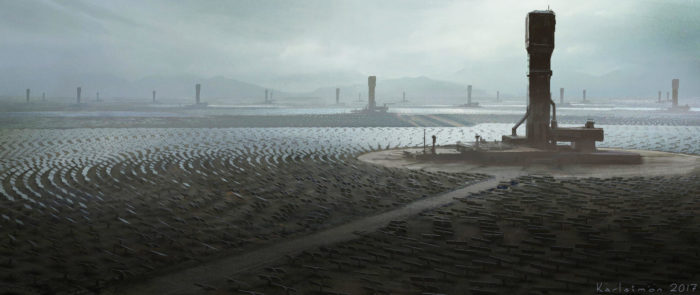The reason renewables are becoming cheaper than fossil fuels nobody mentions
Why do you think energy from wind and solar have become cheaper than from fossil fuels lately in so many places?
I’ve asked many people lately. Most people answer economies of scale, technological advances, simplifying production, and factors about manufacturing solar and wind tools.
I’d like to point out how expensive fossil fuels have become. Have you heard of the La Brea tar pits? Here’s Wikipedia’s description:
La Brea Tar Pits are a group of tar pits around which Hancock Park was formed in urban Los Angeles. Natural asphalt (also called asphaltum, bitumen, pitch, or tar—brea in Spanish) has seeped up from the ground in this area for tens of thousands of years. The tar is often covered with dust, leaves, or water. Over many centuries, the tar preserved the bones of trapped animals.
People found skeletons of mammoths and even people who fell into them and died. They looked like this:

They’re oil!
Tar pits, also called petroleum seeps, are oil on the Earth’s surface. Oil used to lie around in pools anyone could scoop up and use. In fact, records show humans using oil from seeps for heating and lighting for thousands of years—no oil wells, no machinery. Records show humans using fossil fuel materials for 70,000 years!
Today we go to the North Sea, drill a mile deep under treacherous ocean and rock, or to Alaska, deserts, and other oceans. We destroy mountains of coal in Appalachia. Look at this rig. Do you think it’s cheap to make, install, and run in one of the most inhospitable places on Earth?

We used up the cheap stuff!
Renewables haven’t become nearly as cheap as fossil fuels have become expensive. We used up the cheap stuff that was lying all over the world.
Fossil fuels would cost less if we could still just walk out and scoop it off the ground. We’ve used up all the surface oil. We’re using up forests, fish, and fresh water. If we only look at increasing supply, we’ll use up everything until it isn’t cheap any more.
We could arrive at this image from Blade Runner 2049:

It’s fictional, but more than possible if we naively consider solar and wind as simply good, to arrive at a dystopic world, even if solar powered.
We’ll use up everything if we don’t stop ourselves
To clarify, the problem with oil isn’t running out of oil, it’s running out of clean air, water, and land that burning oil pollutes. Likewise we won’t run out of wind or sun, but will keep extracting material to make the tools, batteries, and so on as well as places to dump the used material. Also, we run out of places to grow plants for food and whatever value we put on untouched nature by putting wind and solar farms there.
Increasing supply isn’t benign. It’s extractive and polluting, just less polluting than fossil fuels, but fossil fuels didn’t pollute that much in the beginning. Actually, they helped clean up horse manure and decrease slave labor—huge benefits at the time.
The practical, effective alternative: reduce demand
Years ago, when I believed fusion and efficiency would solve everything and population control meant One Child policies and governments in the bedroom, I would have rejected reducing demand. Since then, I learned the pattern that without a strategy of reduction, tactics like fusion and efficiency continue the patterns that created this situation—since Watt’s steam engine and before to Uber/Lyft today and in renewables if we don’t prioritize reducing consumption over increasing supply.
The more I look, the more I find people and nations who have voluntarily, non-coercively lowered demand and population, increasing freedom, health, longevity, and prosperity. You could start with my posts on Mechai Viravaidya, the tip of the iceberg.
It’s tough to argue with what works and nothing is more sustainable than living sustainably now. While most people who haven’t tried will cry that it’s hard, I’ve tried and my experience has revealed that it’s rewarding, more accessible for underprivileged, fun, and creates joy, community, and connection. Extraction has always created and exacerbated inequality and waste. People stick to it because they don’t know alternatives. Well, now you do.
Read my weekly newsletter

On initiative, leadership, the environment, and burpees